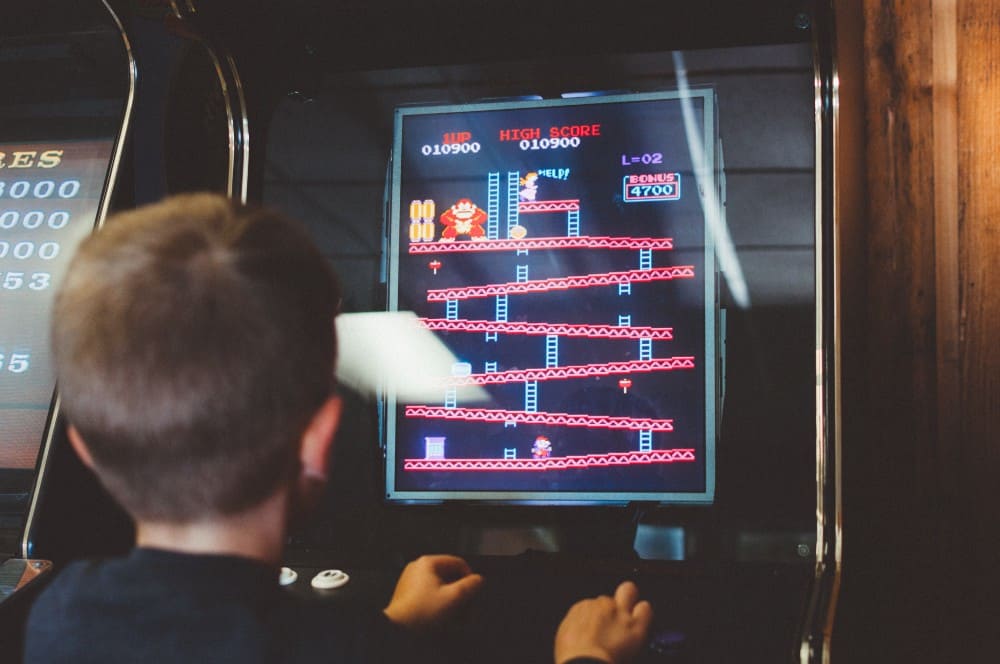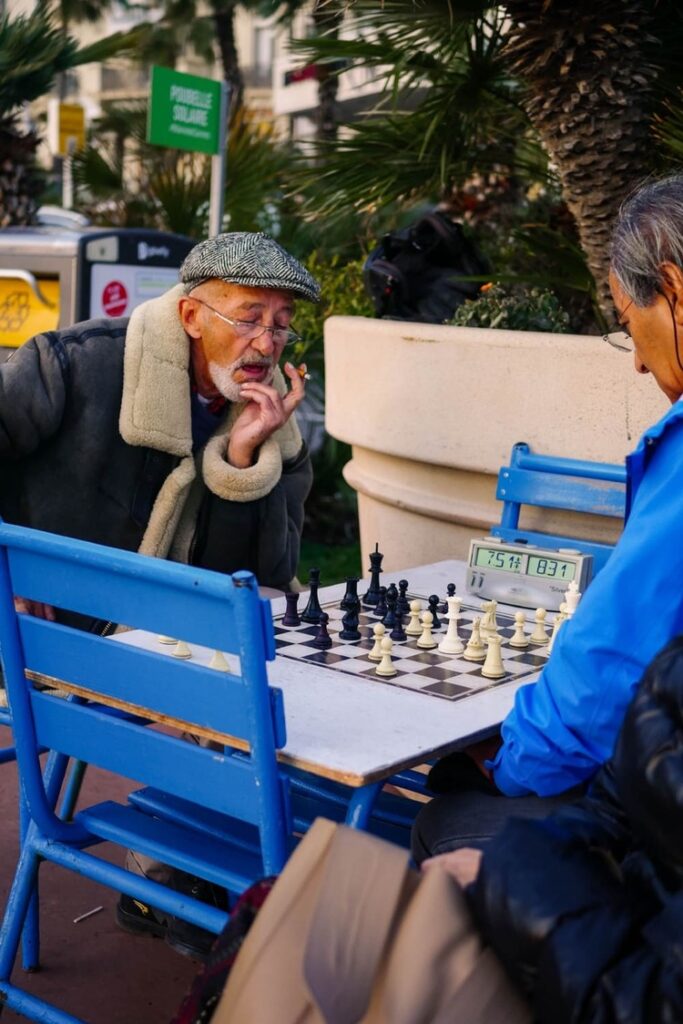Even if the idea is debatable, a world without work seems inevitable in the long term. At least some part of the population will go through permanent unemployment.
Such a change could disrupt millions of lives, as paid work is a high source of psychological safety and contentment for people.
But that doesn’t mean the end of human occupation altogether. There are other non-economic activities that can distract and challenge us.
Throughout history, some social groups have already pursued meaningful activities without the constraints of paid work.
What are these nonwork occupations like, and will they provide enough meaning to a post-work society devoid of economic necessities? Let’s find out.
Technological unemployment and the crisis of meaning

Without debating whether it will happen, let’s imagine a situation where automation is prevalent in all economic activities.
As robots are taking care of producing goods, selling and distributing them, most of the population is left unemployed. In this society, people don’t have to go to the workplace anymore and can enjoy access to unlimited products and services. They don’t need to make any physical or cognitive effort while benefiting from a basic income. Well, they don’t even have to put up with annoying coworkers.
As appealing as this abundance state might be, it might also lead us to what specialists call “a meaning crisis”.
People usually attach a lot of their sense of identity and psychological safety to their job. In the workplace, they can demonstrate their agency to tasks tailored to their skills. They get to cultivate self-esteem and self-accomplishment by attaining rewarding goals. They can also find purpose by participating in a collective value-creation process.
From this perspective, technological unemployment might take a significant source of stimulation out of our lives.
That begs the question: will there be an activity capable of replacing the meaning-generating role of work?
There are three alternatives to work that we can spontaneously think of.
The first answer would be leisure. Leisure has always been the second-best choice after work. Since the First Industrial Revolution, after-work time has been time spent with more and less meaningful activities.
As workers have got to enjoy more and more time off throughout the 20th century, this free time has been filled with concrete hobbies like basketball, DIY, knitting, photography, and so on.
These occupations can bring a sense of accomplishment, makes us achieve tangible work, and create belonging. But they might lack a general purpose outside occasional distraction. We might not feel the same feeling of usefulness as when selling a product to a customer or generating revenue for our company.
A second answer would be familial, friendship, and social-related activities. Taking care of our relatives and friends is already a big part of our lives. It’s from close relationships that we can feel connected, create our own homes and nurture our legacy.
This commitment to nurture friendships and create families makes us feel proud and happy for the effort we put into it. But we’re not doing it usually for the result, we’re doing it out of love for other people. We’re not doing it to prove or improve something, but merely to connect with people.
A third answer would be charity, non-profit and volunteering work. And this is quite a great alternative since there are basically no differences between paid and purpose-driven work. However, this kind of work might also be automated as well.
So, is there another final alternative that can match all these requirements? Yes, and it’s called game-playing.
Games in a post-work society

You might know the fable of the ant and the grasshopper from Aesop and La Fontaine. It opposes the ant that worked all summer and the grasshopper that spent it leisurely.
Bernard Suit is a theorist that sought to reverse the lesson made by this story. Instead of supporting the ant’s hard-working attitude, he sought to defend the grasshopper from having played all summer and having enjoyed it. Why did he think that way?
In his book, The Grasshopper: Games, Life and Utopia, Suits suggests a unique framework for defining game-playing, that goes beyond the mere notion of a hobby.
When we work, we usually pursue a goal that we want to reach by any means. Like work, game-playing also relies on attaining a very specific winning condition. For example, scoring more goals than the competing team or throwing a little ball into a hole in the ground. Suits call these goals prelusory, as they are defined before the game is taking place.
But where game-playing differs from work is that these goals are achieved by using suboptimal means. When we work, we try to find the most efficient ways to do the job and remove less efficient ways of working. When playing games, however, we accept rules that constrain our possibilities. We deliberately make the most of less-efficient means. For example, we accept to only use our feet to move and hit a soccer ball, or to strike golf balls only with a club. Suits call these rules “constitutive rules”.
Prelusory goals and constitutive rules are not enough to enable people to play. What we need also is deliberate obedience to the rules. We have to accept the rules, but because they are necessary conditions for playing games. We have to comply with them for the sake of enjoying games. Suits call this a lusory attitude, in other words, a genuine adherence to the game.
For example, we can challenge our friends to take a longer road on the way back. That doesn’t look like the most efficient way to get home. And for sure it’s not driven by an economic or moral purpose. But it’s a game worth playing when it involves the right level of difficulty and fits our current skills. In that case, what could make it exciting is if the sun is soon coming down and if we challenge ourselves to get home first.
What makes this drive for games so special? When done at its best, it can bring as much meaning as holding a purpose-driven position in a company. It can make us belong to a collective process, train new skills, and feel proud of our achievements and efforts. Contrary to what the ant might think, the Grasshopper might also be pursuing value-added and rewarding endeavors
Actually, throughout history, social groups have cultivated meaningful and engaging activities that went beyond work. They have focused on high-end craft, arts, politics, and even religions. These can all be ways to appreciate limiting constitutive rules and enjoy the challenge they are bringing to us. They can all be game-like activities when they are not exclusively driven by economic, moral, or other external purposes.
In the end, this all comes down to the quality of the game writer and the game’s magnitude.
The different kinds of post-work occupations

What makes for a great game? Mainly how it leads us to a road of ever-ending growth and rewarding chase. The ideal game is about self-mastery.
One first -obvious- example is video games. New video games are designed every day, and they are becoming more and more sophisticated. They are creating unique virtual worlds where millions of people can connect and live unexpected adventures.
More importantly, they are sharing the common feature of game-playing defined by Suits. Gamers played not for external purposes (to earn money or gain influence)- or at least that’s not the most common drive for video games. Most of them play for the sake of it, because they enjoy the experiences and challenges that virtual games are providing them.
They adhere to their constitutive rules (limited lifebar, capabilities, or narrative constraints) so much that they feel like belonging to these worlds. When the metaverse will expand, they’ll get to experience even deeper interactions and emotions.
Another example is sport, social and non-virtual games. Whether basketball, climbing, or chess, they all rely on loving the internal challenge and tension of game-playing. Of course, professional athletes and players are also in it for the money and recognition. But for the most part, they are playing at their highest level out of passion for their favorite game.
They are doing it to promote the pleasure of their discipline to the wider public. They are conveying values of sharing and enjoyment. Furthermore, they are fueling communities that are fervently passionate about their game.
Religion and make-believe activities can also be seen as a case of game-playing. Famous author Yuval Noah Harari has compared them to computer games. Like them, it’s all about complying with limiting rules and making ourselves spiritually better.
The only problem with religion is that believers are so fond of their fantasies, that they genuinely believe in fictional characters. They cannot make a difference anymore between their games and reality (contrary to gamers).
The last and even more significant example is art and craftsmanship. Artists and craftsmen are submitting themselves to unbearably tight constraints to create unique works of art. Even when products and goods of all varieties will soon be abundant, they’ll keep finding meaning in perfecting their craft.
In that sense, they are embodying the ideal of game-playing: the endless passion for improving ourselves and engaging ourselves in hard challenges. They are showing that it’s not about the activity we undertake but the intention we put into it.
No doubt that all these activities will survive the post-work era. It will remain on us to learn and create exciting and everlasting games.





